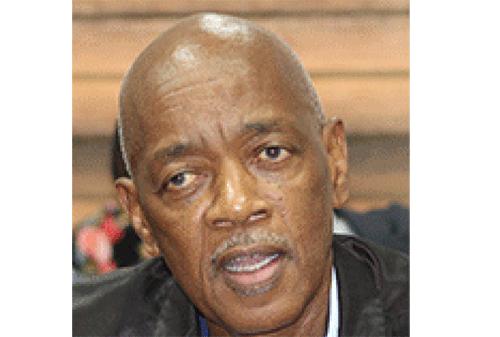Gerson Uaripi Tjihenuna
Upon hearing about the passing on of Dr Uazuva Kaumbi, last Thursday (16th November 2023), I texted his first cousin, Joshua Kaumbi. The latter is a younger brother of my late wife, Jochbeth Kaumbi-Tjihenuna. That text message is worth quoting; it reads: “Some of the finest brains Namibia has ever seen have stopped to think; at least this side of eternity.” And I meant every word of it.
Uazuva Kaumbi’s life touched many people in different ways. Since his passing, many people have weighed in on his sterling career and colourful exploits in rich and deep tones. However, having been married to his first cousin, for me he was family.
Having been raised at Omaruru, Uazuva belonged to that cosmopolitan corridor that stretches from Otjimbingwe, through Omaruru and Usakos all the way up to Walvis Bay. This is a corridor where marrying across the ethnic divide (mainly between Damaras and Ovaherero) is nothing to write home about and where people “shuttle” in and out of different cultures without blinking an eye. Yes, this is the corridor that produced some of our most refined nationalists during the darkest hours of our national resistance as a people. Some of the names that immediately spring to mind are those of Nathanael Maxuilili, Theo-Ben Gurirab, Zephania Kameeta, Ben Amathila, Daniel Tjongarero, Immanuel Ngatjizeko, Alpheus Naruseb, Jason Angula, Philip Tjeriye and others. Uazuva was a social product of that cosmopolitan corridor.
Uazuva was an Einstein in his own right because, depending on the topic at hand, he could move seamlessly, and with relative ease, between engineering, business management, politics, Pan Africanism, and restorative justice. And he did that in style and with class. He was a prolific writer as well as an orator of note.
Sometimes the two of us would compare notes on topical issues. For example, when that great Pan-African celebrated scholar, Ali Mazrui, passed on in 2014, the two of us, unbeknown to each other, wrote tributes in two different dailies. We later exchanged our different perspectives with each other on Mazrui.
The immense range of his razor-sharp intellect covered a multidimensional universe and the vastness of his genius was just beyond compare. Uazuva would always show a strong scholarly, if commanding, presence in any discussion. His thoughts as a thinker were always embedded within Pan Africanism, yet he was also a committed Christian.
For me, his involvement in the activities of the Ovaherero Traditional Authority (OTA) and the struggle for restorative justice to which he dedicated the latter part of his life, does not, in any way, contradict his patriotism and his Pan Africanism. For him, that type of activism was a critical contextualisation of the Genocide Debate within the broad framework of nation-building and Pan Africanism.
Some of the projects on which Uazuva left his magic touch were as board chairperson of NBC, executive producer of the movie ‘Where others wavered’ (a movie that depicts the life of Founding Father Sam Nujoma), lecturer in business management, editor in chief of Eraka (the OTA mouthpiece), a member of the NUST Council, etc.
Those who appreciate serious scholarship and a life of total self-sacrifice to community service, would agree with me that his was, by any stretch of the imagination, no mean achievement at all.
The legendary Che Guevara once said: “Wherever death may surprise us, let it be welcome if our battle cry has reached even one receptive ear and another hand reaches out to take up our gun.” A befitting farewell quote for this great son of the Namibian soil because his battle cry for restorative justice has indeed reached a few receptive ears.
To me, he was not Dr Kaumbi, because that would be too distant. To me, he was just Mbutii (young brother), the nickname by which those close to him would normally call him. Rest in the Lord Mbutii.


